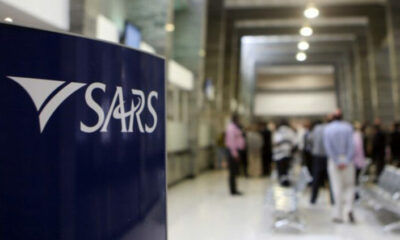Business
Medical Tax Credits in South Africa: What You Can and Can’t Claim in 2025

For most South Africans, tax season brings a faint glimmer of relief: the chance of a refund from SARS. Many already know about medical aid tax credits, but what often flies under the radar is that you can also claim for out-of-pocket medical expenses. Think of it as the taxman recognising those unexpected bills for lab tests, specialist visits, or even extra support for a dependent with a disability.
But, as with all things SARS, it’s not as simple as sending through a receipt and waiting for the money to arrive.
The hidden tax benefit few South Africans know about
Section 6B of the Income Tax Act makes space for what’s called the Additional Medical Tax Credit (AMTC). This is separate from the standard medical aid credit and is designed to lighten the load on taxpayers who spend extra on healthcare that isn’t covered.
That sounds generous, but here’s the catch: SARS is strict, and every cent must be properly backed up with documentation.
The Council for Medical Schemes recently reported that medical aid members forked out over R43 billion in out-of-pocket medical payments in the 2023/2024 tax year. That figure shows just how much South Africans are carrying beyond their monthly contributions.
What counts as a qualifying expense
The law defines qualifying medical expenses broadly, but they all share one trait: they must be unrecoverable. In other words, if your medical aid or another party paid you back, it doesn’t qualify.
Valid expenses include:
-
Fees for doctors, dentists, optometrists, physiotherapists, and even herbalists.
-
Hospital stays, nursing care, or prescribed medicines.
-
Costs linked to a disability or mental impairment, provided they meet SARS’s requirements.
For disability-related claims, SARS insists on a completed ITR-DD form signed off by a registered medical practitioner. Without it, claims risk being disallowed.
Why SARS makes you work for it
Tax Consulting SA is blunt: you can’t just add expenses to your return and expect SARS to approve them. You’ll need tax invoices, medical scheme certificates, and detailed records, all kept for at least five years.
Even then, the relief is not one-size-fits-all. For most taxpayers, the claim only applies if out-of-pocket medical costs (and excess contributions) exceed 7.5% of taxable income. Only 25% of that excess is claimable.
For those over 65 or caring for a disabled dependent, the calculation is kinder. In these cases, SARS allows you to claim 33.3% of the total qualifying costs and excess contributions.
A balancing act for taxpayers
What this really means is that higher earners need to hit higher thresholds before the credits kick in. Tax Consulting SA calls it an “inverse relationship” between medical expenses and taxable income. Put plainly, the more you earn, the more you need to spend before you can claim.
With the 2025 tax season already underway and the deadline for non-provisional taxpayers set for 20 October, the clock is ticking. Tax experts are urging South Africans to get organised now rather than scramble later.
Public sentiment and cultural reality
For many South Africans, medical tax credits feel like a mixed blessing. While they promise some financial relief, the reality is that the claims process can be complicated and paperwork-heavy. The frustration often lies in the gap between what’s available in theory and how accessible it feels in practice.
This frustration highlights a broader issue. Healthcare costs in South Africa are spiralling, and even with medical aid, families are stretched. The R43 billion figure confirms what many already know at a personal level: the system leaves gaps, and ordinary taxpayers carry the weight.
Why this matters now
This year’s tax season isn’t just about numbers. It’s about recognising the real financial strain that comes with staying healthy in South Africa. From everyday doctor’s visits to life-changing disability care, the ability to claim tax relief offers at least some acknowledgement of the burden.
For those willing to do the paperwork, the AMTC can make a noticeable difference. The key is understanding your category, keeping records, and not assuming SARS will hand over cash without proof.
Tax relief might not cover everything, but for some families, it could mean the difference between financial stress and breathing room.
Also read: SA Sugarcane Growers Urge Tau to Act as US Tariffs Bite
Follow Joburg ETC on Facebook, Twitter, TikTok and Instagram
For more News in Johannesburg, visit joburgetc.com
Source: Business Tech
Featured Image: Medical Aid Quotes


























